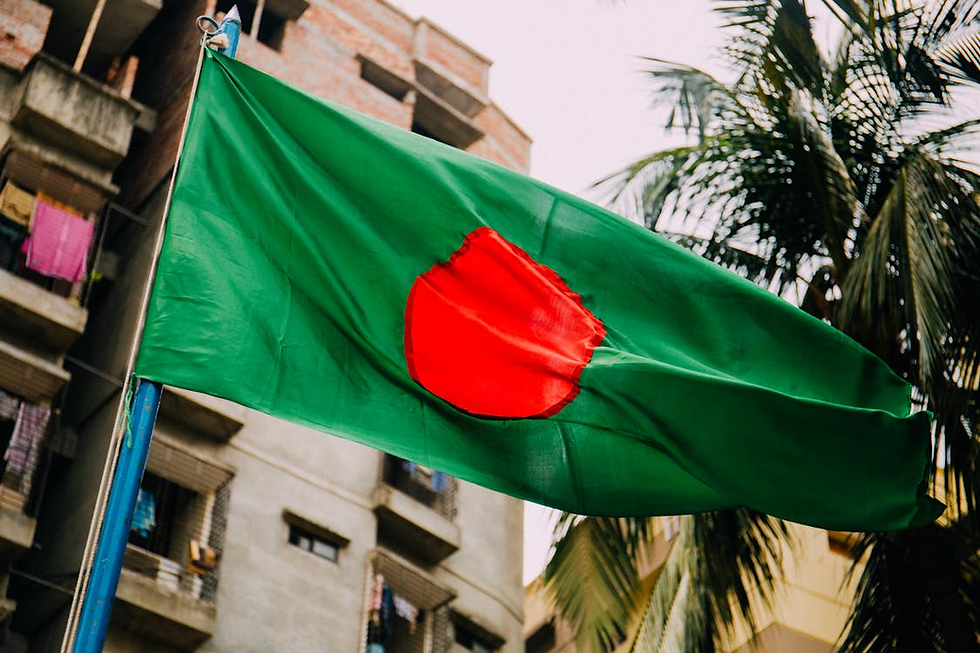A Fight for Freedom: The Importance of August 23
- Skylar Parks

- Aug 28, 2020
- 3 min read
Updated: Dec 23, 2024
In this historical piece, Skylar Parks discusses the significance of August 23. This article examines the cruel conditions in which enslaved people lived, and describes how they rebelled. The International Day for the Remembrance of the Slave Trade and its Abolition is an opportunity to remember those who died as a result of the inhumane practice, and honor the memory of those who fought for liberation. Learn more about some suggested forms of activism.
Between August 22 and August 23, 1791, there was a major uprising in Saint-Domingue: a former French colony that is part of present-day Haiti. The "revolution" played a significant role in the abolition of the transatlantic slave trade. We now observe The International Day for the Remembrance of the Slave Trade and its Abolition on August 23. Its goal is to remember those who were killed by slavery, consider its consequences, celebrate the elimination of the inhumane practices, and acknowledge those who fought for human rights.

On August 22, 1791, enslaved people, whose anger was fuelled by generations of abuse and racism, rebelled in the French colony of Saint-Domingue. They began murdering white people, taking prisoners, and setting fire to plantations. This uprising would pave the way for, not only the abolition of slavery, but also Haiti’s independence from Spain and France. The slave revolt would later be led by former slave François Toussaint L’Ouverture and would consist of deserters from the Spanish and French armies, and others who had formerly been enslaved.
Having been enslaved on the plantation, Toussaint was one of the few who learned to read and write. This led him to be influenced by the political philosophers of the Enlightenment period such as Locke and Rousseau, devote himself to Catholicism, and become an expert in horsemanship and medicinal plants. His education came as a great advantage to the revolting army; Toussaint was able to train the troops, and serve as a doctor.
By August 30, the rebelling army held nearly 15,000 troops, had destroyed over 180 plantations, and was nowhere close to slowing down. They were relentless, even "merciless", as the previously-enslaved militants mowed down the French army, and took no war prisoners. One army volunteer even went as far to say: “This is the graveyard of the French; here one dies off like flies.” Barely a month after the August 22 rebellion, the port city of Le Cap in northern Haiti was burned to the ground. It became apparent that those rebelling would stop at nothing to gain their freedom.
In 1794, after years of fighting and fear of defeat, France finally emancipated, and granted citizenship, to all enslaved people in the Empire. By the following year, the Treaty of Basel would end conflict between Spain and France; slavery would end in Hispaniola.
The Haitian Revolution was not just significant in the 1790s; its effects can still be seen today. The victims of slavery showed that, despite social class and educational status, revolution is always viable. However, for true change to be achieved, everyone had to be actively involved in reforming unjust systems. Although the French and Spanish soldiers were not directly harmed by the slave trade, they chose to change the course of the future.
Today, it is estimated that 40.3 million people are still "stuck in slavery", and at least 30,000 of them are in the west African cocoa industry. Activists against modern slavery highlight the importance of educating yourself, friends, and family if the practice is to be abolished. Other forms of advocacy include protesting, the signing of petitions, and recognition of countries' colonial pasts. Tony's Chocolonely highlights the importance of individual responsibility, rather than passivity and reliance on the government to take action.
Sources:

_edited.png)



Comments